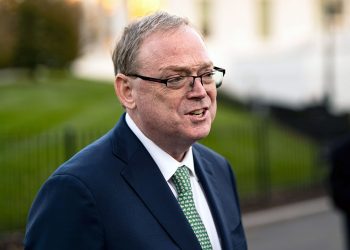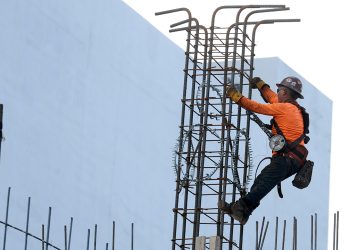By Cynthia Kim and Jihoon Lee
SEOUL (Reuters) – South Korea’s central bank on Thursday joined its peers in the U.S. and Australia in seeking to hose down investors’ aggressive rate cut expectations after keeping interest rates at a 15-year high.
“Most board members still see it as premature to discuss any interest rate cuts as inflation is above our target level and we need to check its slowdown path,” governor Rhee Chang-yong said in a news conference in Seoul. The Bank of Korea (BOK) kept interest rates steady at 3.50%, as expected by all 38 analysts polled by Reuters.
That echoes recent comments from Federal Reserve Chairman Jerome Powell, who has repeatedly said policymakers should be prudent in deciding when to make policies less restrictive and be confident inflation will continue falling.
The BOK’s decision on Thursday to hold rates steady was a unanimous one.
However, Rhee on Thursday added one of the board’s seven members said the door for a rate cut should remain open over the next three-months.
That was enough to keep the chance of a rate cut on investors’ radar with South Korea’s policy-sensitive three-year treasury bond futures rising during the news conference.
“I don’t think that one board member’s view signals an imminent rate cut but rather that the bank is slowly gearing up for a pivot towards interest rate cuts,” said Kong Dong-rak, a fixed-income analyst at Daishin Securities, who sees the bank cutting rates in the third quarter of this year.
The consensus forecast from analysts is that the BOK will start cutting rates in the third quarter of this year, but that would largely depend on when the Federal Reserve starts easing, analysts say.
South Korea’s 300 basis points of interest rate hikes have stalled economic growth in Asia’s fourth-largest economy as construction investment took a hit from higher borrowing costs even as exports continued to improve.
Rhee said he still sees very little chance of rate cuts in the first half of this year as inflation, while cooling, is still above the central bank’s target of 2%.
Consumer inflation hit a six-month low of 2.8% in January, still above the central bank’s target but easing for a third straight month mostly due to falling oil prices.
The BOK kept its economic growth forecast for this year unchanged at 2.1% and inflation at 2.6%, it said along with the rate announcement.
Thursday’s rate decision was the first for board member Hwang Kun-il, who began his three-year term on Feb. 13.
Read the full article here









